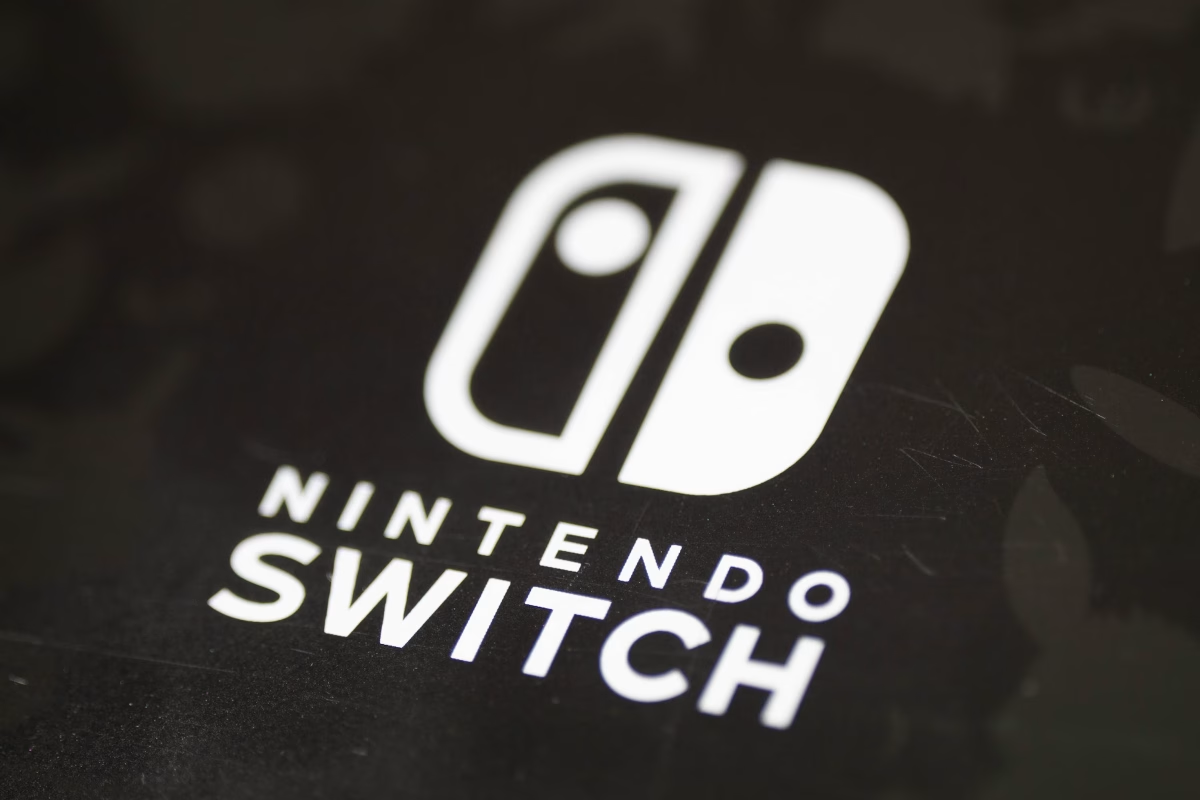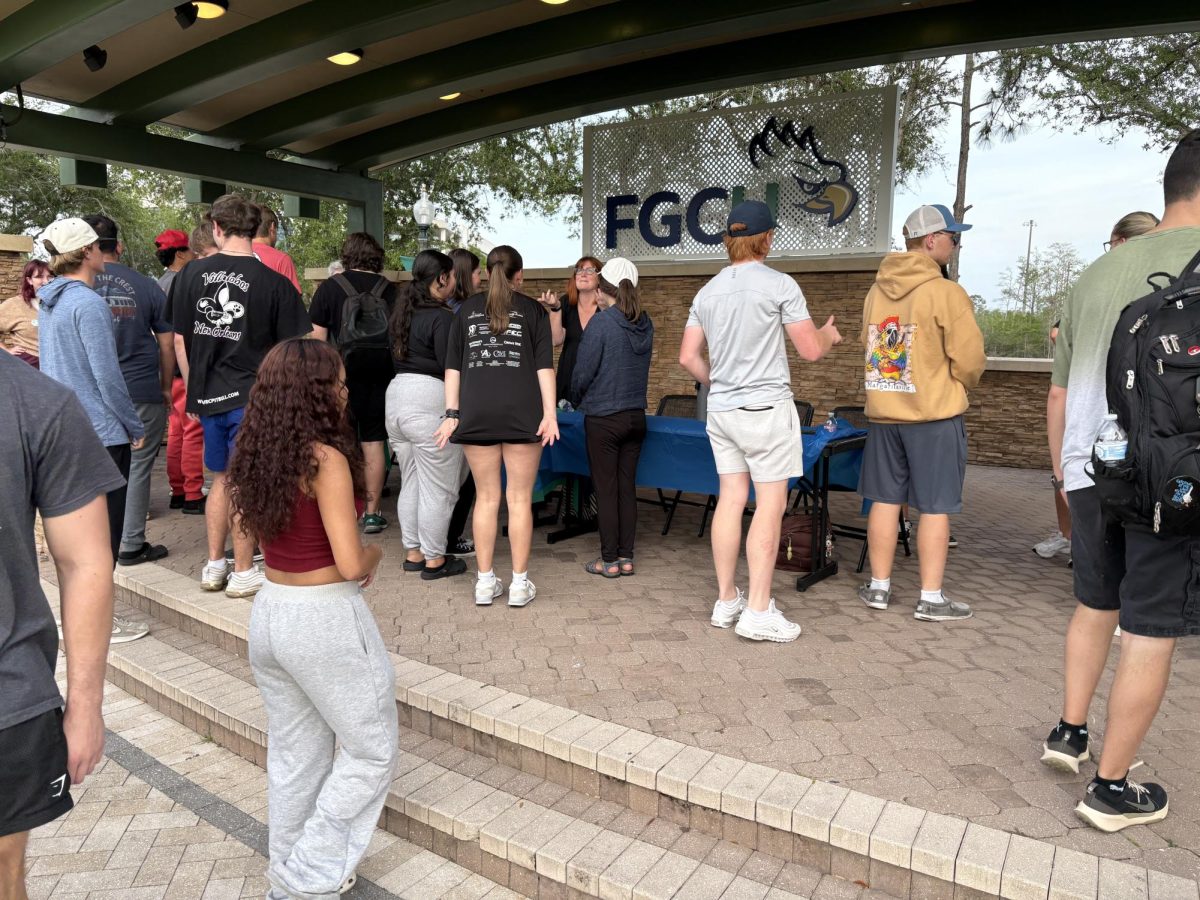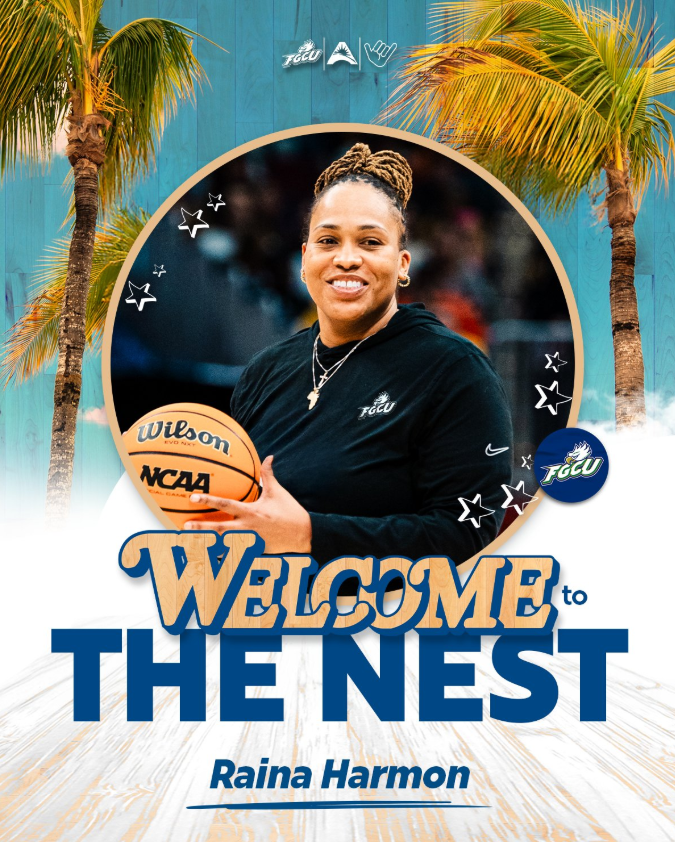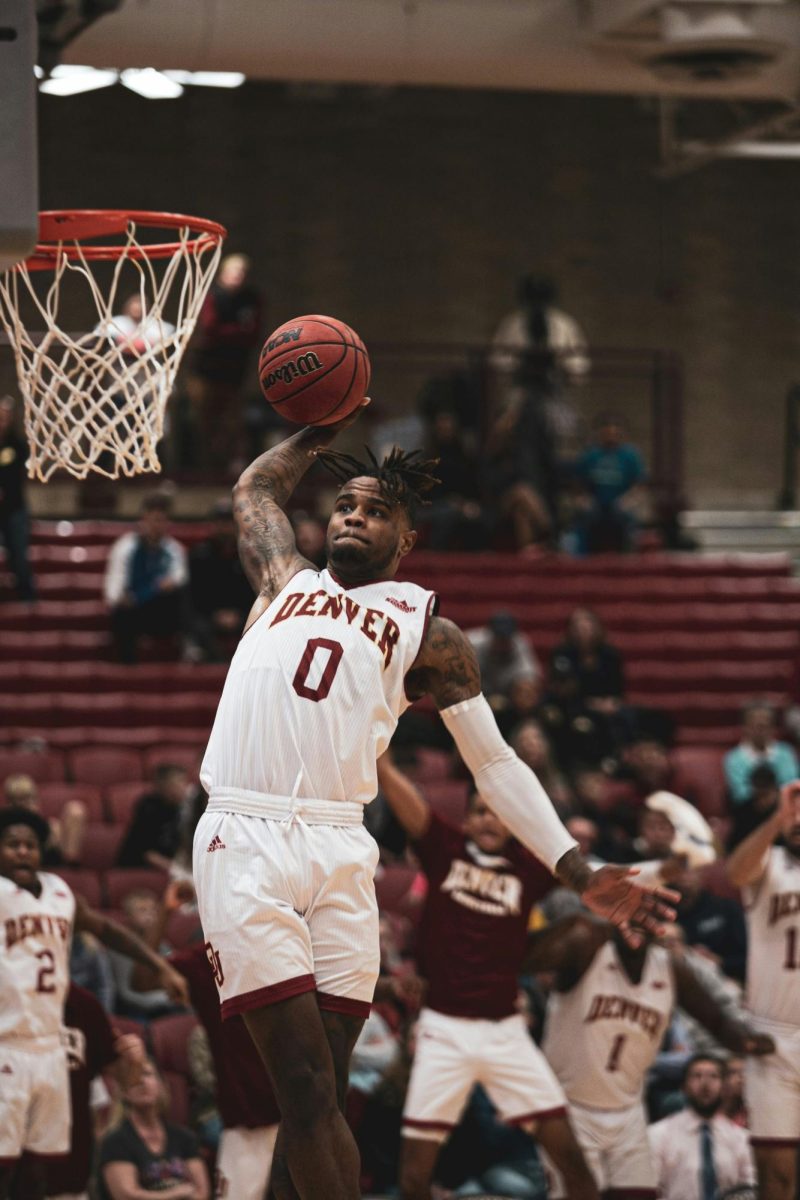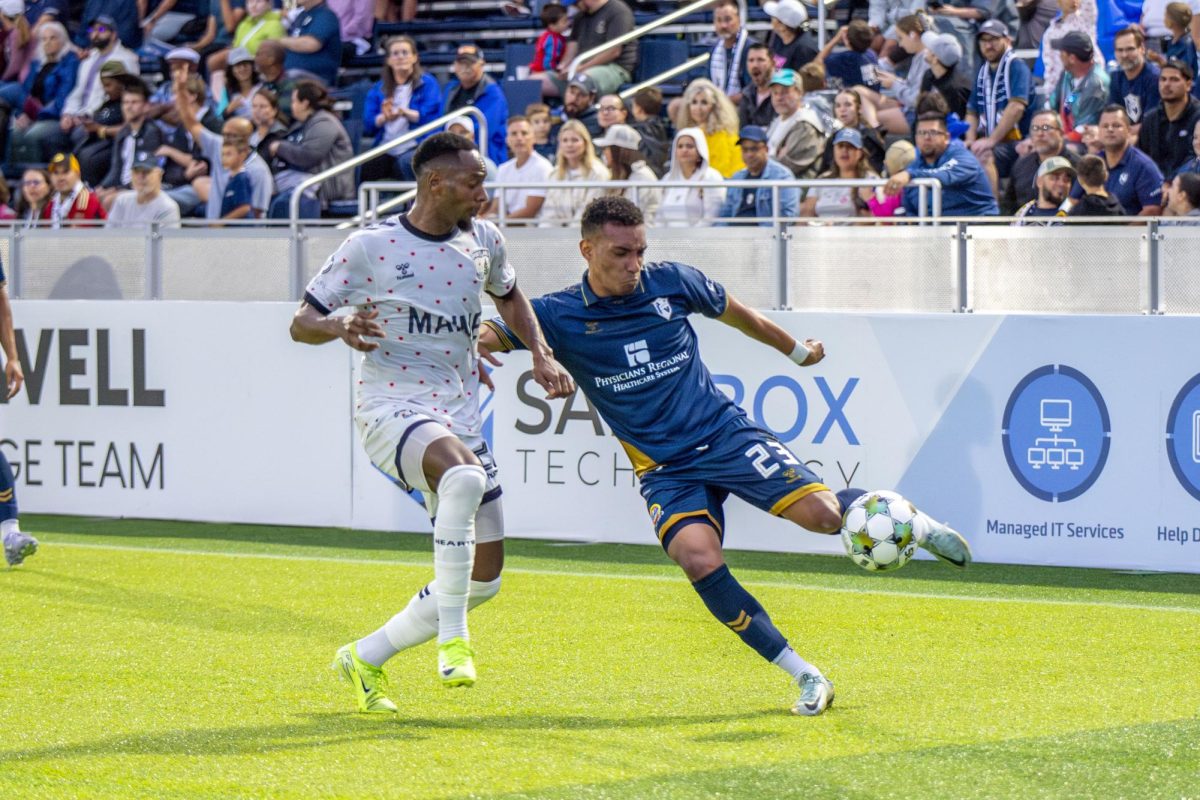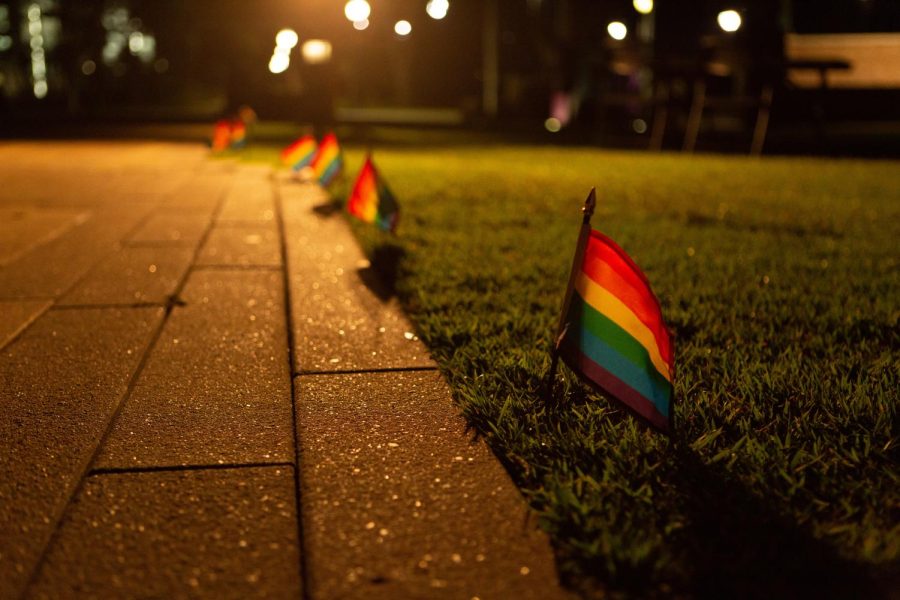Researchers Look Into LGBTQ Students Footing at FGCU
Pride flags lining the walkways through the library lawn. Pride Week at FGCU kicked off with a block party in the library lawn on November 28, 2022.
May 3, 2023
A small group of researchers have chosen FGCU as their sample for interviews geared towards students’ experiences at a predominantly white institution. Their project hopes to understand how the campus climate affects the LGBTQ students’ mental and physical health through recognizing them as a marginalized community.
The project is being spearheaded by Dr. Hasan Aydin, an FGCU professor of multicultural education in the Department of Leadership, Technology and Research. Dr. Aydin prefers not to comment on the project until all the necessary data has been gathered for sufficient results.
Andrew Funari, the assistant director of the FGCU Recreation Department, has been helping Dr. Aydin in conducting interviews. Funari is a doctoral student at the university, and after doing a multicultural project centered around the LGBTQ community, he and some colleagues were asked to be a part of a research project.
“My professor [Dr. Aydin] was very experienced in cultural, ethnic, and racial research but he wanted to expand to other marginalized communities,” Funari said. “And, being a member of this community, I was kind of his foot in the door to getting more exposure to that population.”
Funari helped Dr. Aydin understand terms and phrases commonly used by the LGBTQ community and its younger generations. He’s also shown Dr. Aydin the simple differences between gender identity and sexual orientation. Since he’s lived it, it’s easier for him to articulate these traits.
As for why the project started, he says that FGCU seems to have a higher population that appears to be out or openly representative of LGBTQ students. And from the reports he’s seen from a faculty and staff perspective, the faculty and staff are an older demographic that seem less prepared for this community. There were multiple reports of both positive and negative reception among them, so Dr. Aydin and his researchers decided to look into this further.
“Research and existing research in Southeast Florida have more suppression of LGBTQ students and more marginalization from a policy and resource standpoint,” Funari said. “Which is also kind of why we wanted to investigate [an] institution within that [predominantly white] demographic.”
Funari says that other research has shown that Southwest Florida and the Southeast United States in general has not been very accepting or welcoming to LGBTQ students and specifically college campuses. So, they are looking at both the college campus and the surrounding community as factors as far as how students and their perceptions feel about their experiences. They’re not looking for a specific answer, either.
Eva Cotter, who goes by she/her pronouns, is a 18-year-old freshman studying psychology. She says that she hasn’t “really experienced much hate.” She says that she feels comfortable in her clubs and in her dorm, despite not yet getting to know her neighbors.
“Usually, teachers are very open, even excited about [LGBTQ],” Cotter said. “Half the people I run into are either an amazing ally or a member of the community.”
Cotter, although having a pleasant experience, prefers to not join the Gender and Sexuality Alliance (GSA) at FGCU. She says that she’s had a negative experience being part of a group in high school.
She claims that the GSA’s have a habit of getting too political, which can leave a bad taste for students that are there for fun.
“I don’t want my sexuality to be political,” Cotter said. She is doubtful that it would be possible, but she wants a designated safe space on campus free of politicization.
Students say the biggest roadblock to LGBTQ accommodation, or any kind, is that colleges have historically had their funding restricted by the state for being “openly queer.”
Key Crespo, who goes by she/they pronouns, is a 19-year-old psychology student. Crespo is pleased with most of the resources that FGCU offers, including “Rainbow Eagles” a support group in Counseling & Psychological Services.
However, what Crespo wants is more acknowledgement of the LGBTQ community.
“I’d like more openness, more discussion about it,” Crespo said. “Even so much as using they/them pronouns when writing essay prompts. It’s the little things that show consideration.”
Although they like the school’s resources, Crespo feels that students must dig a little too hard to find them.
Part of it is the legislature in Florida. Politically, the climate for LGBTQ people is not good in Florida and that is something that Funari thinks needs to be addressed because every day, there are more laws and rhetoric that is suppressing LGBTQ people. This may be putting restraints on what FGCU can do as a state institution to support LGBTQ students.
As an LGBTQ person, Funari didn’t come out until after his college years because he didn’t feel comfortable, safe, or supported. He was afraid of being kicked out of his house at a young age if he came out.
“I think as a society we’ve really grown, expanded,” Funari said. “There’s more representation in media and culture. And when I was in college [in 2009 to 2013], we were fighting for tolerance. Now, we’re fighting for acceptance. We want to be equitable and recognized and I think it took time and effort to get to that point.”

